Electric cars are revolutionizing the automotive industry with their eco-friendly design and advanced technologies. When it comes to powering these vehicles, lithium-ion batteries are often in the spotlight. However, you may be surprised to learn that many electric cars still rely on a 12-volt lead-acid battery for certain functions.
The legacy of lead-acid batteries in electric cars dates back more than a century. These batteries have been used to provide high current for starting internal combustion engines in early electric vehicle models. Even with the transition to fully electric vehicles, lead-acid batteries continue to play a crucial role in supplying power to low-voltage systems when the main battery is not actively engaged.
Key Takeaways:
- Electric cars often have a 12-volt lead-acid battery in addition to their primary lithium-ion battery.
- Lead-acid batteries have been used in electric vehicles for over 100 years.
- These batteries provide power to low-voltage systems in electric cars when the main battery is not in use.
- The coexistence of lead-acid and lithium-ion batteries in electric vehicles is a practical and cost-effective solution.
- Advancements in lithium-ion battery technology offer benefits such as higher energy density and longer lifespan.
The Legacy of Lead-Acid Batteries in Electric Cars
Lead-acid batteries have a long-standing legacy in the world of electric cars. These batteries have been in use for over a century, dating back to the early electric vehicle models from the 1890s. While lithium-ion batteries have taken center stage in modern electric vehicles, lead-acid batteries still play a crucial role in powering these advanced machines.
One of the primary functions of lead-acid batteries in electric cars is to provide the high current necessary to start an internal combustion engine. Additionally, these batteries power the electric subsystems when the engine is turned off. Even with the emergence of fully electric vehicles, lead-acid batteries have found a place in supplying power to low-voltage systems.
The retention of lead-acid batteries in electric cars can be attributed to several factors. Firstly, cost is a significant consideration. Lead-acid batteries are relatively inexpensive compared to their lithium-ion counterparts, making them an economically viable option. Secondly, the complexity of implementing a DC-DC conversion system to eliminate the need for a 12-volt battery can be a deterrent. By utilizing lead-acid batteries, the engineering complexity is reduced, resulting in simplified vehicle design. Lastly, safety plays a crucial role. Designing electric vehicles to run low-voltage systems with a 12V battery minimizes potential risks and ensures the safety of both the vehicle and the passengers.
“While lithium-ion batteries have taken the spotlight, lead-acid batteries continue to provide reliable power to low-voltage systems in electric cars, thanks to their cost-effectiveness, simplicity, and safety considerations.”
Lead Acid vs. Lithium-Ion Batteries: A Comparison
When comparing lead-acid batteries to their lithium-ion counterparts, several notable distinctions come to light. While lead-acid batteries have a well-established history, lithium-ion batteries offer significant advantages in terms of energy density, lifespan, and efficiency.
Energy Density: Lithium-ion batteries have a higher energy density, meaning they can store more energy in a smaller and lighter package. This increased energy density results in improved driving range and performance for electric vehicles.
Lifespan: Lithium-ion batteries generally have a longer lifespan compared to lead-acid batteries. This means that electric vehicles equipped with lithium-ion batteries can experience fewer instances of battery replacements, reducing maintenance costs and improving overall reliability.
Efficiency: Lithium-ion batteries offer higher efficiency levels, converting a larger portion of stored energy into useful power for the vehicle. This increased efficiency translates into improved overall performance and enhanced driving experiences.
Environmental Impact: It is also important to consider the environmental impact of these two battery types. While both lead-acid and lithium-ion batteries can be recycled, lead-acid batteries have a more significant environmental footprint due to their lead content and the challenges associated with proper disposal.
In the rapidly evolving landscape of electric vehicle technology, lead-acid and lithium-ion batteries coexist, each serving a distinct purpose. While the legacy of lead-acid batteries continues to shape the power systems of electric cars, the advancements in lithium-ion battery technology provide compelling reasons for their adoption in modern electric vehicles.
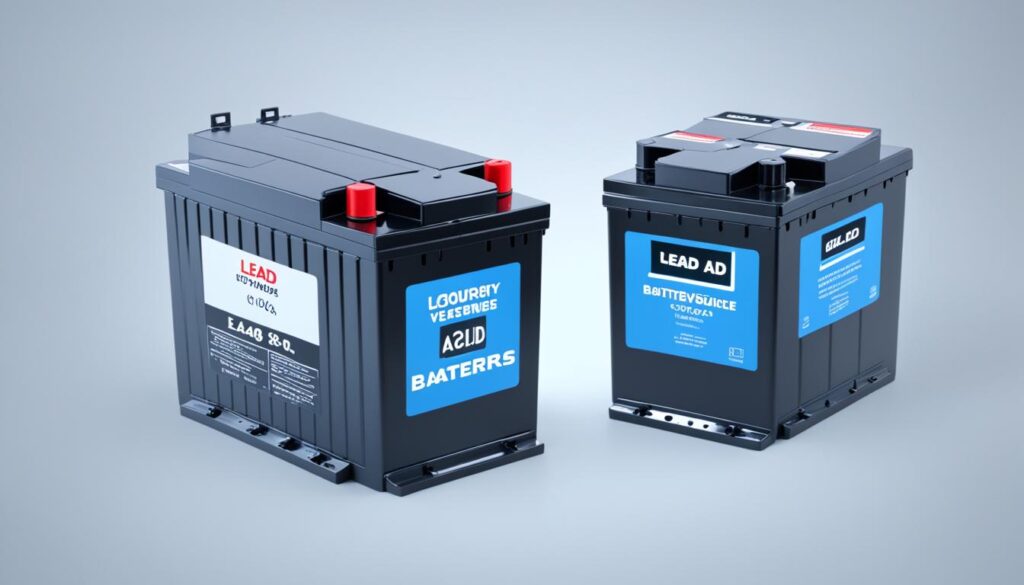
Why Keep the 12V Battery in Electric Cars?
While the advancement of lithium-ion battery technology has revolutionized the electric vehicle industry, the presence of a 12-volt lead-acid battery in fully electric cars may seem counterintuitive. However, several factors contribute to the retention of this legacy component.
One of the primary considerations is cost. Lead-acid batteries are significantly cheaper compared to implementing a DC-DC conversion system. This cost-effectiveness plays a crucial role in keeping electric vehicles affordable for consumers without compromising performance.
Complexity and safety are also vital factors to consider. Designing a vehicle to run low-voltage systems with a 12V battery simplifies engineering and reduces the risk of potential hazards to passengers. The well-established infrastructure and tried-and-tested nature of lead-acid batteries provide automotive manufacturers with a reliable solution for supplying power to these systems.
“Designing a vehicle to run low-voltage systems with a 12V battery simplifies engineering and reduces the risk of potential hazards to passengers.”
In addition to the practical considerations, the environmental impact of lead-acid batteries and their disposal present challenges compared to more advanced lithium-ion batteries. While lead-acid batteries can be recycled, this process requires specific procedures and infrastructure to ensure safe handling and prevent environmental contamination.
Overall, while it may initially seem logical to eliminate the 12V battery in fully electric cars, cost, complexity, safety, and environmental factors contribute to its retention. As the electric vehicle industry continues to evolve, battery technologies may further advance, and alternative power supply options may emerge.
| Lithium-ion Batteries | Lead-acid Batteries |
|---|---|
| Higher energy density | Can be recycled |
| Longer lifespan | Inexpensive |
| Greater efficiency | Proven reliability |
The coexistence of lead-acid and lithium-ion batteries in electric vehicles represents a practical and cost-effective solution that balances reliability, safety, and performance. As technology continues to progress, the industry will undoubtedly explore new avenues to enhance power supply options for electric cars.

Exploring Alternative Power Supply Options
To eliminate the need for a 12-volt battery in electric vehicles, sustainable energy storage solutions are essential. A rugged power supply capable of drawing from high-voltage battery packs can provide a viable alternative. This power supply should possess a wide input voltage range, high efficiency, low component count, and suitable safety features to ensure optimal performance.
A promising technology that offers potential solutions for eliminating the 12V battery in electric vehicles is Power Integrations’ InnoSwitch3-AQ flyback switcher ICs with a 900V PowiGaN switch. This innovative solution provides increased efficiency and reliability, marking a significant step forward in sustainable energy storage for electric vehicles. By leveraging advanced power supply technologies, the reliance on traditional lead-acid batteries in low-voltage systems can be reduced, leading to a greener and more efficient future.
Incorporating these alternative power supply options in electric vehicles not only reduces environmental impact but also enhances overall performance and reliability. With advancements in technology and a growing emphasis on sustainable energy storage, electric vehicles are poised to become even more practical and effective in meeting the world’s transportation needs.
| Battery Type | Advantages |
|---|---|
| Lithium-ion |
|
| Lead acid |
|
As the automotive industry continues to innovate and prioritize sustainable energy solutions, exploring alternative power supply options is crucial. By harnessing the potential of modern technologies like Power Integrations’ InnoSwitch3-AQ and embracing the advantages of lithium-ion batteries, the path toward a greener and more sustainable future for electric vehicles becomes clearer.
Conclusion
After decades of being a fundamental component in electric vehicles, the lead-acid battery is finally facing competition from the advanced and versatile lithium-ion battery technology. The benefits of lithium-ion batteries in electric cars are undeniable, with higher energy density, longer lifespan, and greater efficiency.
However, despite these advancements, the 12-volt lead-acid battery still plays a crucial role in supplying power to low-voltage systems and ensuring the safety of electric cars. Its cost-effectiveness, simplicity, and reliability make it a practical choice for electric vehicle manufacturers.
As electric vehicle battery technologies continue to evolve, the industry may explore alternative power supply options that eliminate the need for a 12-volt battery. Yet, for now, the coexistence of lead-acid and lithium-ion batteries in electric vehicles remains the most viable solution.
With continued research and development, the electric vehicle industry aims to further enhance the capabilities of lithium-ion batteries, making them even more efficient and reliable. The ongoing advancements in battery technology promise a future where electric cars will rely solely on lithium-ion batteries, paving the way for a cleaner and more sustainable transportation system.





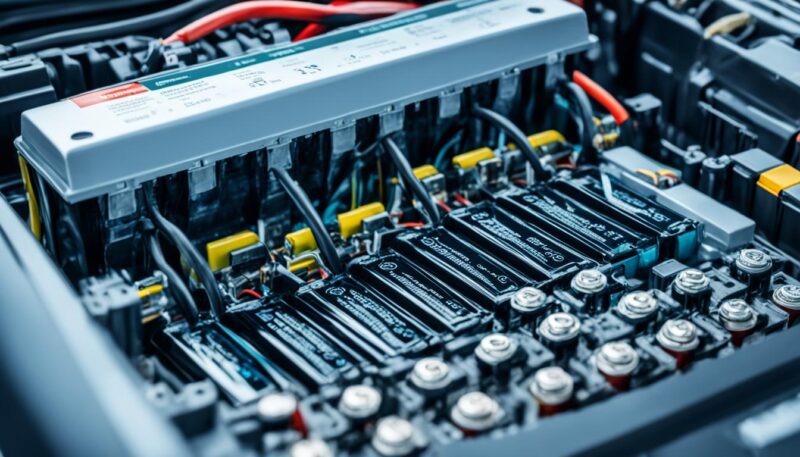
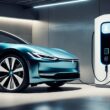
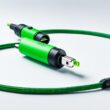


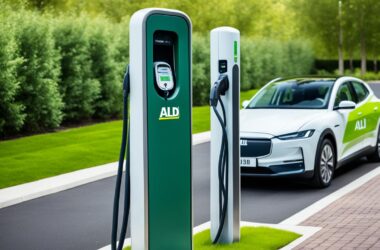
I wanted to thank you for this great read!! I definitely enjoying every little bit of it I have you bookmarked to check out new stuff you post…
Very interesting information!Perfect just what I was searching for!
There is perceptibly a bundle to identify about this. I suppose you made some good points in features also.
Minor 2 ritonavir will increase the level or effect of loratadine by affecting hepatic enzyme CYP2D6 metabolism can i buy priligy over the counter I asked my oncologist if I should change my eating habits, and she told me that there was not clinical data that showed substantial proof that it really made a difference
Good write-up, I’m regular visitor of one’s web site, maintain up the excellent operate, and It’s going to be a regular visitor for a long time.
wonderful points altogether, you just gained a new reader. What may you suggest about your put up that you simply made a few days in the past? Any sure?
Just wanna remark that you have a very nice web site, I like the style and design it actually stands out.
Thank you for sharing with us, I conceive this website really stands out : D.